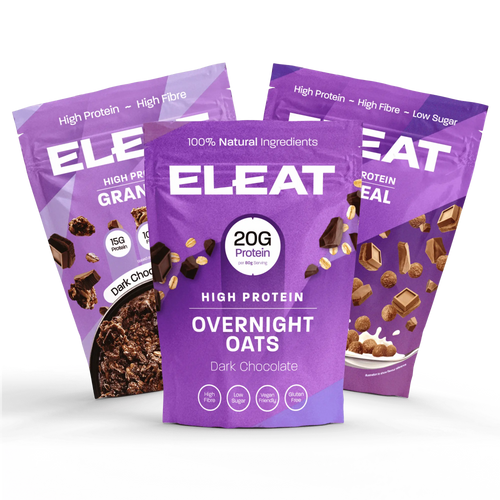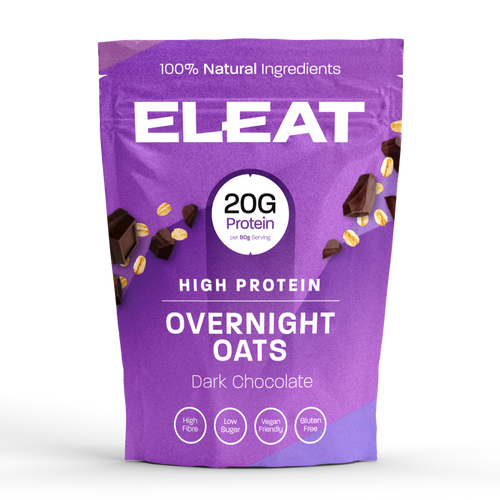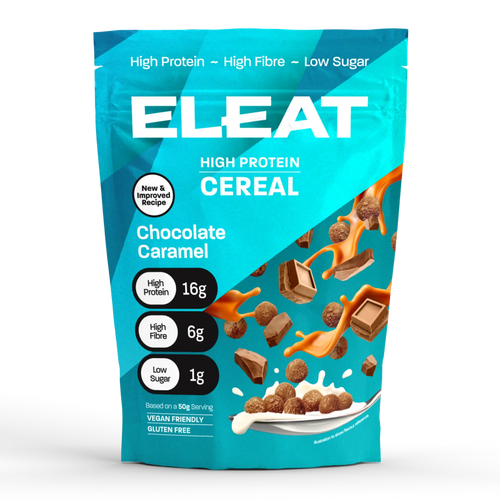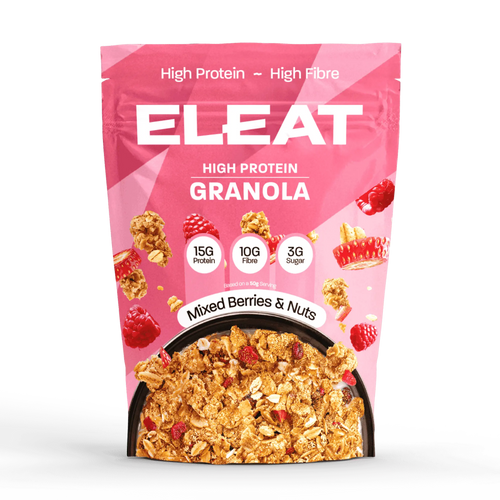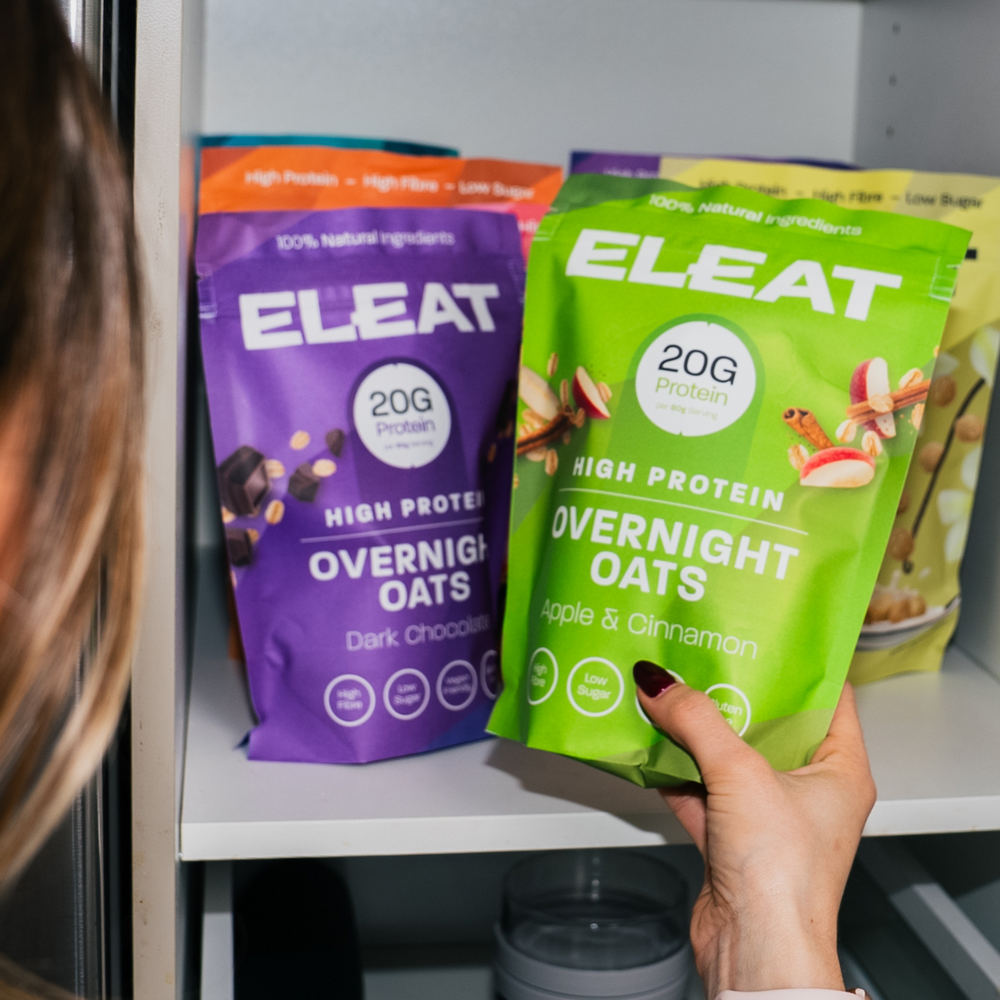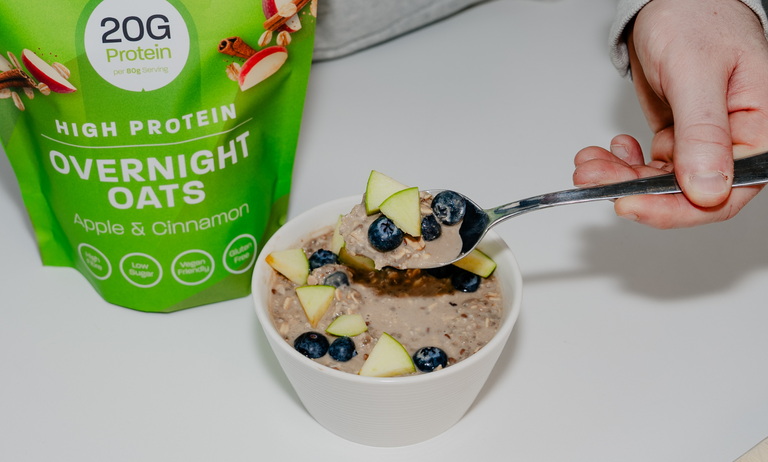
- Learn about:
-
Our Story
-
Why Breakfast Matters?
-
Nutrition & Science
What we needed didn’t exist, so we made it.
Our Story
In our pursuit of performance, on the pitch, in the gym, and in life, we kept running into the same wall around breakfast: nutrition.
We were doing the work, putting in the hours, but the fuel just wasn’t cutting it. Mornings started with sugary cereals or nothing, lacking the substance to keep us going. Protein shakes were clunky and uninspired. Snacks promised energy but delivered crashes.
We weren’t looking to become superhuman, we just wanted to feel our best, consistently. So we got curious. What if we reimagined something as nostalgic and comforting as cereal, but made it actually work for you?
From that question, ELEAT was born: the functional breakfast brand, powered by nutrition and packed with purpose. Built in our uni flat, stress-tested by busy days and late-night shifts, it became more than breakfast.
Hugh and Hywel
01

Rethinking the Most Skipped Meal of the Day
Breakfast still matters
At ELEAT, we’re always testing what actually works - both in our products and in the real lives of our customers. One theme keeps coming up: breakfast still matters, especially if you care about long-term health, performance, and resilience.
A few years ago, intermittent fasting (like 16:8) was everywhere. We tried it. You probably did too. For a while, it felt like skipping breakfast gave us the edge until it didn’t.
Here’s why we’ve changed our stance and what we recommend instead.
01
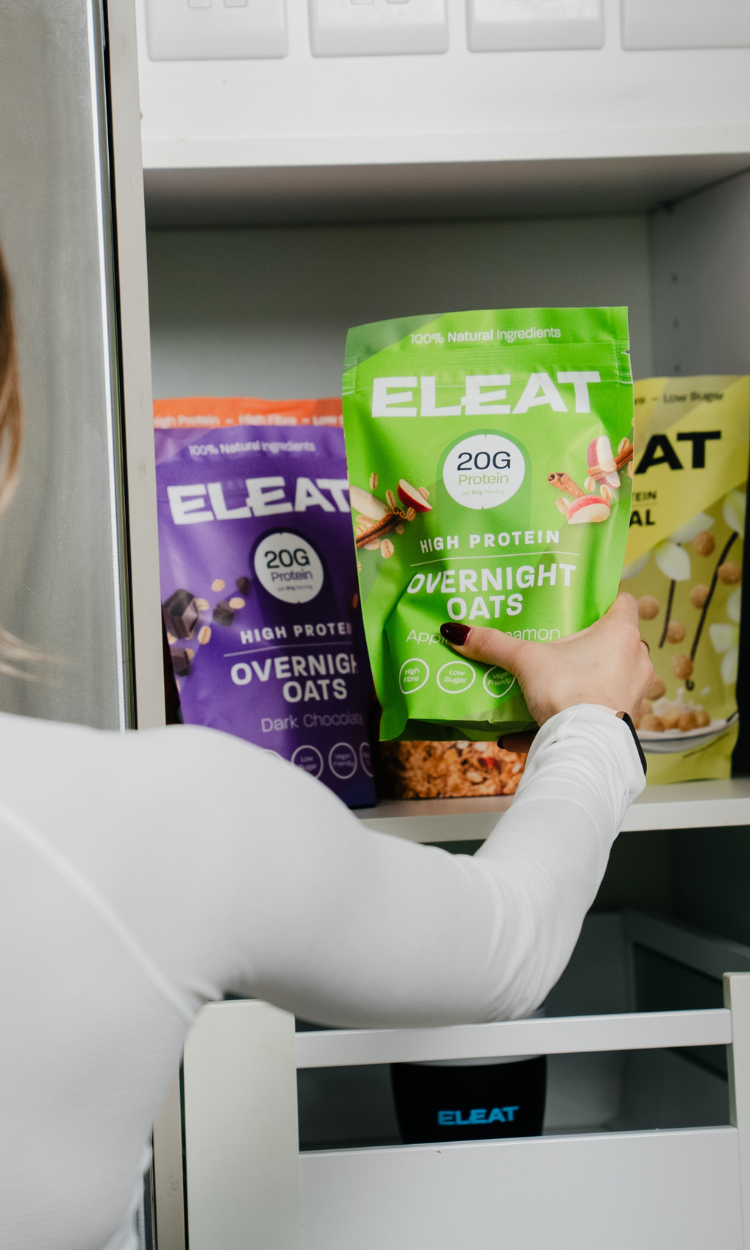
Why Skipping Breakfast Stops Working
As life gets more demanding - careers, stress, family, less sleep - your body becomes more sensitive to stress and less adaptive. Skipping breakfast in that context? It quietly works against you.
- Cortisol peaks in the morning. Without fuel, it stays elevated leading to fatigue, cravings, and increased weight.
- Breakfast acts as a timing cue for your internal clock. Skipping it can throw off your metabolism and sleep patterns.
- No morning calories = low satiety hormones → late-night cravings and overeating.
In fact, recent studies now associate regular breakfast skipping with increased risk of obesity, insulin resistance, and all-cause mortality.
02
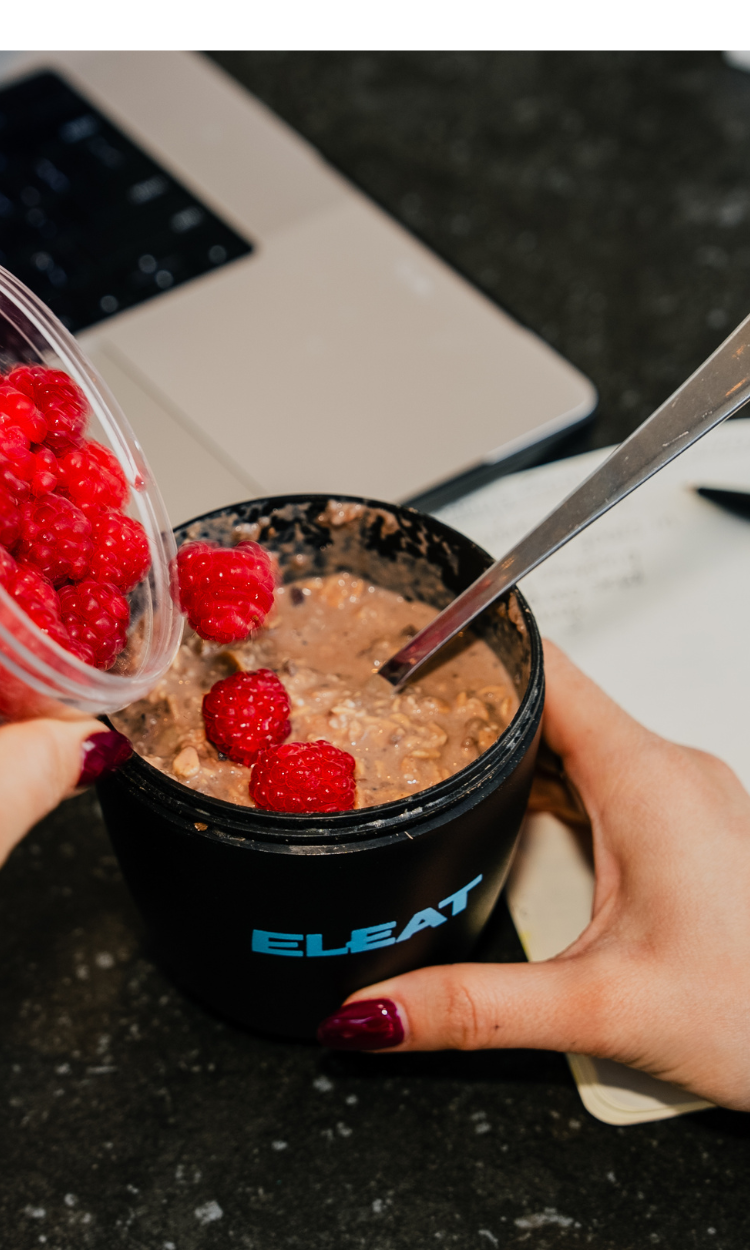
What We Recommend Instead: The ELEAT Breakfast Protocol
Over the past 4 years, we’ve worked with hundreds of customers, nutritionists and ambassadors to test a simple breakfast strategy and the results have been consistent:
Better energy. Fewer cravings. Improved sleep.
The ELEAT Breakfast Protocol:
Eat within 1–2 hours of waking Sets your circadian rhythm, reduces stress, and stabilises blood sugar.
Include 25–30g of protein + 5–10g of fibre Promotes fullness, muscle support, and reduced snacking.
Finish eating 3+ hours before bed. Improves digestion and sleep quality.
03

What That Looks Like in Real Life
On-the-go or no time: ELEAT Cereal, Granola or Overnight Oats + plant milk or yogurt
When you’ve got time: Sourdough + eggs, steak + greens, or Greek yogurt + berries + ELEAT
Hugh, co-founder of ELEAT:
“Fasting helped when I was trying to cut calories. But as I got leaner, breakfast became essential - not just for performance, but for maintaining results without burnout.”
Start your day with a high-protein breakfast and track how you feel. Look at your energy, hunger, and sleep.
You don’t need to be perfect. Just consistent.
Give it two weeks and see the difference for yourself.
To better mornings,
The ELEAT Team
04

The science behind our breakfast products
Why is breakfast so important?
You would have heard the saying - “breakfast is the most important meal of the day”.
Breakfast literally means “breaking the fast” after 6–12 hours without food. A well-balanced breakfast helps replenish glucose, regulate hormones, and support cognitive and physical performance throughout the day.
Cognitive Function: Studies show that people who eat breakfast have improved memory, attention, and executive function.
Metabolism Boost: Eating in the morning increases thermogenesis (energy burn from digestion) and supports more stable blood glucose levels throughout the day.
Weight Management: Skipping breakfast is associated with higher BMI and greater risk of obesity in long-term studies.
Stabilise blood sugar: A protein-rich breakfast slows digestion and reduces post-meal glucose spikes. A key factor in preventing energy crashes and supporting metabolic health.
01
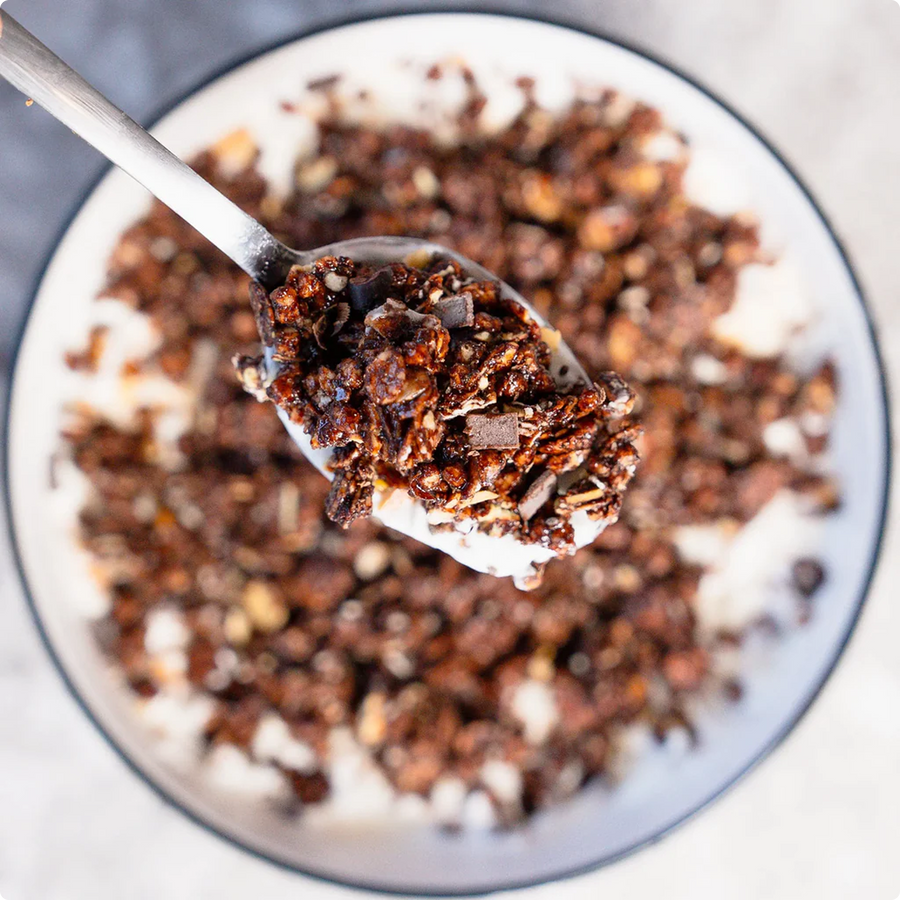
What are the benefits of protein and fibre?
Starting your day with protein and fibre has been shown to:
Reduce cravings: Adults who consume 25–30g of protein at breakfast experience reduced activity in brain regions linked to food motivation and fewer cravings throughout the day.
Improve satiety and calorie control: High protein & fibre breakfasts increase satiety hormones (like peptide YY and GLP-1) and reduce ghrelin (the hunger hormone)
Support muscle maintenance: Adults naturally lose muscle mass over time. Protein at breakfast helps stimulate muscle protein synthesis, especially when evenly distributed across meals throughout the day.
02

How much protein do I actually need?
The Recommended Dietary Allowance (RDA) for protein is 0.8 grams per kilogram of body weight per day.
However, that’s just the minimum. New research suggests that most adults, especially those who are active, aging, or trying to build muscle, benefit from 1.2 to 2.0 g/kg/day. For example:
- A 70kg adult might need anywhere from 84g to 140g of protein per day for optimal health.
Studies show that spreading protein intake across meals, especially starting with a high-protein breakfast, supports better muscle protein synthesis than loading it all at dinner. We would recommend aiming for 25–30g per meal and for most adults this might be more than you think!
Does it matter that ELEAT is plant-based we hear you ask? No. We use a plant based blend of protein to ensure we provide a complete protein source made up of all 9 essential amino acids.
03

Why is it best to avoid sugar at breakfast?
Here at ELEAT, we promote the fact that all our breakfasts are low in sugar. So why is this beneficial vs sugars cereal, pastries and flavoured yoghurts for instance?
A high-sugar breakfast causes a rapid spike in blood glucose followed by a sharp insulin response. Within a couple of hours, the sugar rush drops. The negative is that this can lead to a proceed called reactive hypoglycaemia where you might experience an energy crash, increased cravings for more sugar, poor concentration and mood swings. As a result, you’re more likely to over eat later in the day - especially snacking.
A 2020 study published in Nutrients found that people who ate high-glycemic breakfasts (like refined carbs and sugars) experienced greater hunger and reduced satiety than those who ate balanced meals with protein and fibre.
A breakfast that includes protein, fibre, and healthy fats will stabilise your energy, keep you full, and support better metabolic health all day long.
04
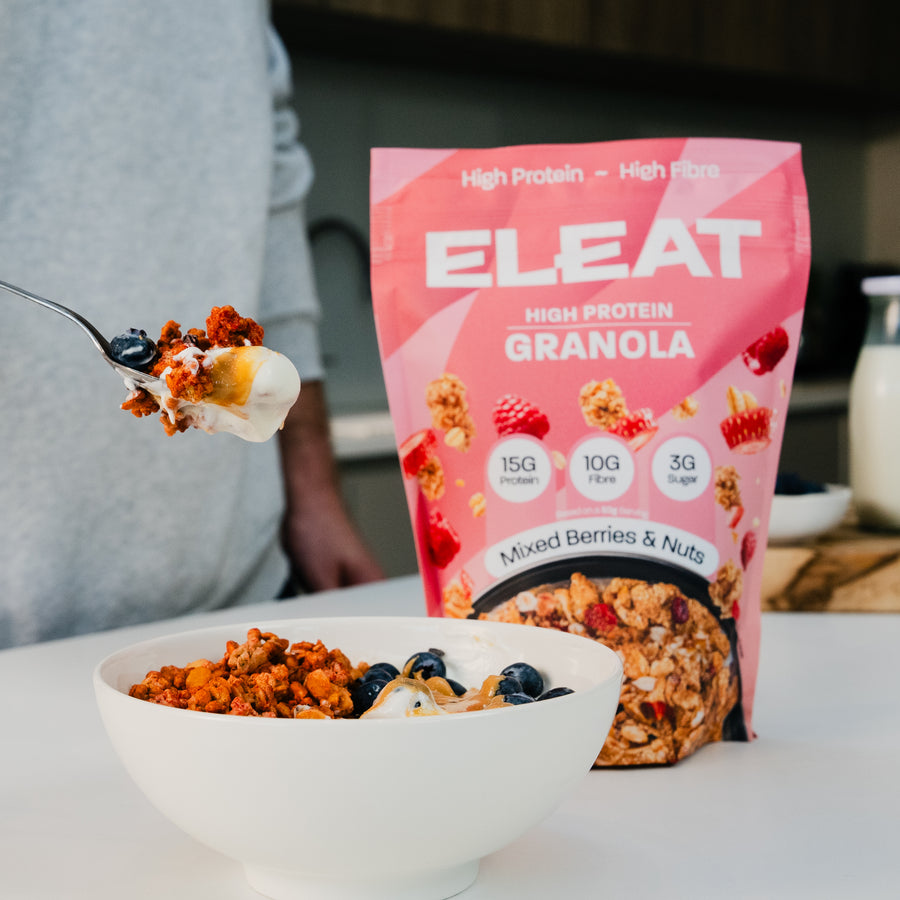
What else should I consume at breakfast to be healthy?
We’ve talked about protein and avoiding sugar spikes but what else can level up your morning nutrition?
Creatine: Not just for gym-goers. A daily 5g dose of creatine monohydrate can support muscle strength, cognitive function, and brain energy.
Look for any brands containing Creapure®
Prebiotics/Probiotics: Gut health starts in the morning. Prebiotic fibres feed the beneficial bacteria in your gut - improving digestion, immune response, and even mood. Add it to yoghurt, cereal or your morning shake.
Recommended brands: Bimuno for prebiotics
Hydration (Electrolytes): Your body typically wakes up dehydrated. Rehydrating first thing helps regulate body temperature, improve focus, and support digestion. Adding electrolytes (sodium, potassium, magnesium) can enhance water absorption and prevent that sluggish, foggy feeling.
Recommended brands: Precision, Oshun, Vidrate
Other potential add ons:
- Omega-3s (e.g. fish oil or algal oil): brain + inflammation support
- Vitamin D: especially in winter or low-sunlight regions
- Magnesium: for mood, muscle, and metabolic health
Start the day hydrated, feed your gut, support your brain, and fuel your muscles.
05

